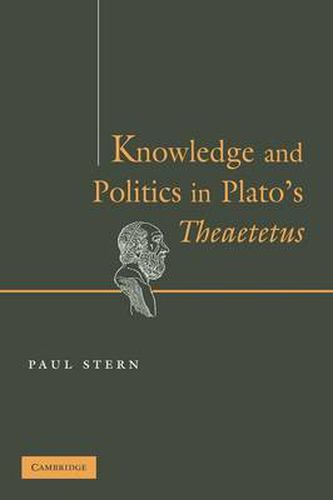Readings Newsletter
Become a Readings Member to make your shopping experience even easier.
Sign in or sign up for free!
You’re not far away from qualifying for FREE standard shipping within Australia
You’ve qualified for FREE standard shipping within Australia
The cart is loading…






The Theaetetus is one of the most widely studied of any of the Platonic dialogues because its dominant theme concerns the significant philosophical question, what is knowledge? In this book Paul Stern provides a full-length treatment of its political character in relationship to this dominant theme. He argues that this approach sheds significant light on the distinctiveness of the Socratic way of life, with respect to both its initial justification and its ultimate character. More specifically, he argues that Socrates’ revolutionary decision to subject political life to philosophic reflection, the decision that leads directly to his trial and execution, is based on his awareness of the elusiveness of comprehensive knowledge and the implications of that elusiveness for the validity of philosophic inquiry. This view of Socrates’ rationale has important consequences for our understanding of political philosophy and of the validity of the life of reason itself.
$9.00 standard shipping within Australia
FREE standard shipping within Australia for orders over $100.00
Express & International shipping calculated at checkout
The Theaetetus is one of the most widely studied of any of the Platonic dialogues because its dominant theme concerns the significant philosophical question, what is knowledge? In this book Paul Stern provides a full-length treatment of its political character in relationship to this dominant theme. He argues that this approach sheds significant light on the distinctiveness of the Socratic way of life, with respect to both its initial justification and its ultimate character. More specifically, he argues that Socrates’ revolutionary decision to subject political life to philosophic reflection, the decision that leads directly to his trial and execution, is based on his awareness of the elusiveness of comprehensive knowledge and the implications of that elusiveness for the validity of philosophic inquiry. This view of Socrates’ rationale has important consequences for our understanding of political philosophy and of the validity of the life of reason itself.